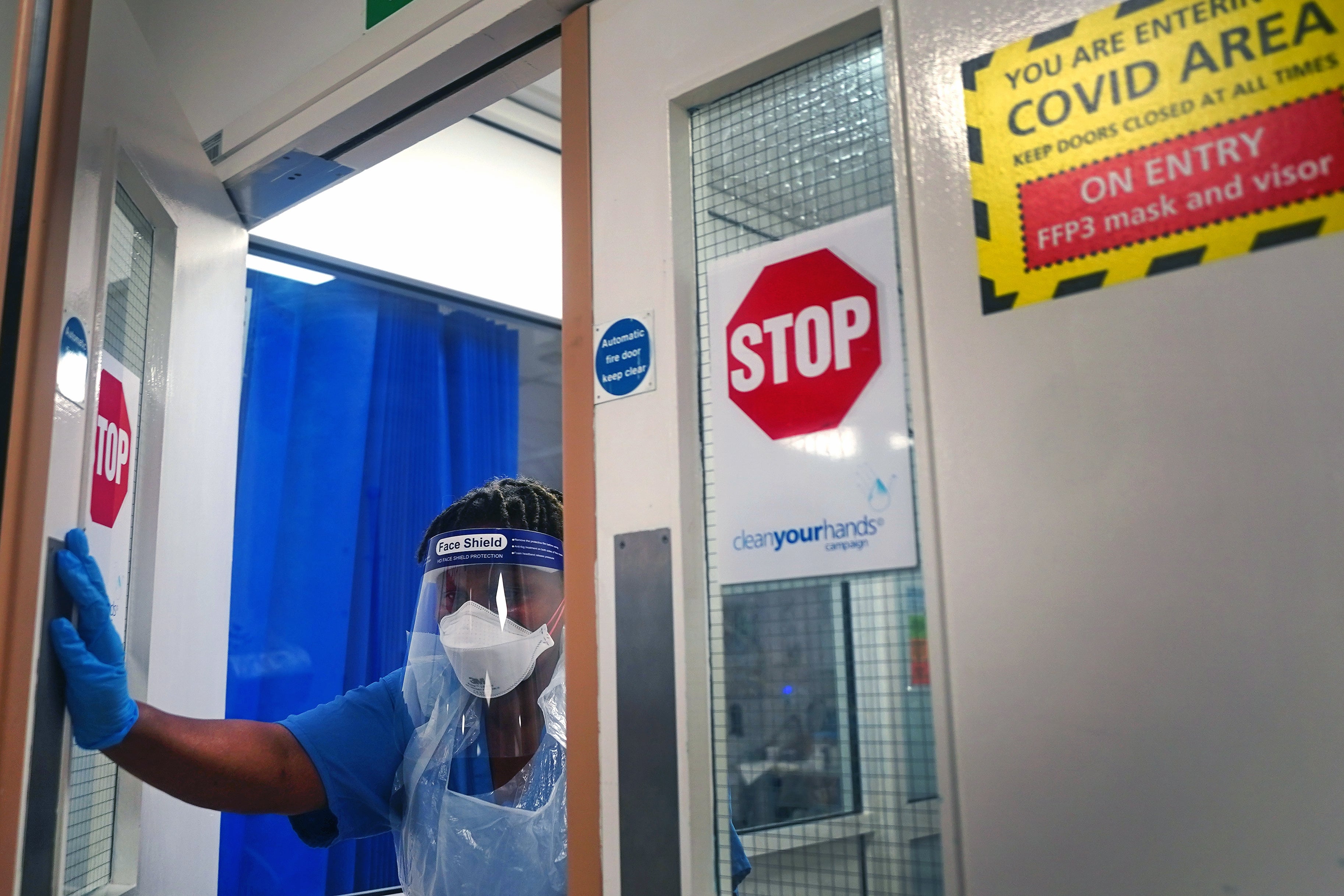Covid-19 hospital admission rates for over-65s highest since early 2021
The number of patients seriously ill with coronavirus remains low, however.

Your support helps us to tell the story
From reproductive rights to climate change to Big Tech, The Independent is on the ground when the story is developing. Whether it's investigating the financials of Elon Musk's pro-Trump PAC or producing our latest documentary, 'The A Word', which shines a light on the American women fighting for reproductive rights, we know how important it is to parse out the facts from the messaging.
At such a critical moment in US history, we need reporters on the ground. Your donation allows us to keep sending journalists to speak to both sides of the story.
The Independent is trusted by Americans across the entire political spectrum. And unlike many other quality news outlets, we choose not to lock Americans out of our reporting and analysis with paywalls. We believe quality journalism should be available to everyone, paid for by those who can afford it.
Your support makes all the difference.Covid-19 hospital admission rates in England for all age groups over 65 have climbed to their highest level since the early weeks of last year, figures show.
Patient numbers are also continuing to rise in all regions – though the number of people being treated for severe symptoms remains low.
Admission rates among people aged 85 and over stood at 189.2 per 100,000 people last week, up from 184.0 the previous week, while for people aged 75 to 84 it was 87.3, up from 77.0.
Both these age groups are now recording their highest admission rates since January 2021, when the second wave of the virus was at its peak.
Among 65 to 74-year-olds the rate is much lower, up from 26.3 to 28.4, but this is still the highest since the beginning of February last year.
Rates among younger age groups are lower still and are broadly unchanged week-on-week, according to the UK Health Security Agency (HSA).
The overall Covid-19 hospital admission rate for England stood at 19.5 per 100,000, up from 18.6 and just below the peak reached at the start of this year (19.9).
This is the fourth successive week-on-week rise, and reflects the impact of the current surge in coronavirus infections which is being driven by the Omicron BA.2 variant.
The total number of people in hospital in England with Covid-19 is also nearing the peak seen at the start of 2022, with 15,632 patients recorded on March 30.
This is not far below the 17,120 reached on January 10, but is still some way from the 34,336 patients at the peak of the second wave of the virus at the start of 2021.
All regions of England have seen a week-on-week rise in patients, with three parts of the country – the South East, South West and eastern England – recording levels last seen in February of last year.
The number of people in hospital seriously ill with Covid-19 remains low, however.
Some 318 patients are currently in mechanical ventilator beds, according to the latest figures from NHS England – some way from the level reached at the beginning of this year (797) and far below the total at the start of 2021 (3,736).
Separate data published on Thursday by NHS England shows just over half of all Covid-19 patients in hospital trusts in England (56%) are being treated primarily for something else, a figure that is broadly unchanged on the last few weeks.
The proportion of patients who are in hospital “with” Covid-19 rather than “for” it continues to be much higher than it was for most of last year, when the figure stood at around 25%.
The latest hospital data comes a day before most people in England will need to start paying for Covid-19 tests.
The Government’s Living with Covid plan means that from Friday free testing will continue only for certain groups, while others who think they have coronavirus will be urged to stay at home.
Asked on Thursday if it is the right time to end free Covid testing, HSA chief executive Dr Dame Jenny Harries said the UK must be prepared for the pandemic to “remain unpredictable”.
She said: “The pandemic takes its own course and it will remain unpredictable to a large extent for the next, say, 18 months to two years, and we will have to be continuously alert to monitor those rates and to respond appropriately to any new variants.
“But as with other respiratory viruses such as flu… at some point we have to come to terms with that.”
People should continue to take precautions, she said, adding that she will continue to wear a mask in shops and on public transport.